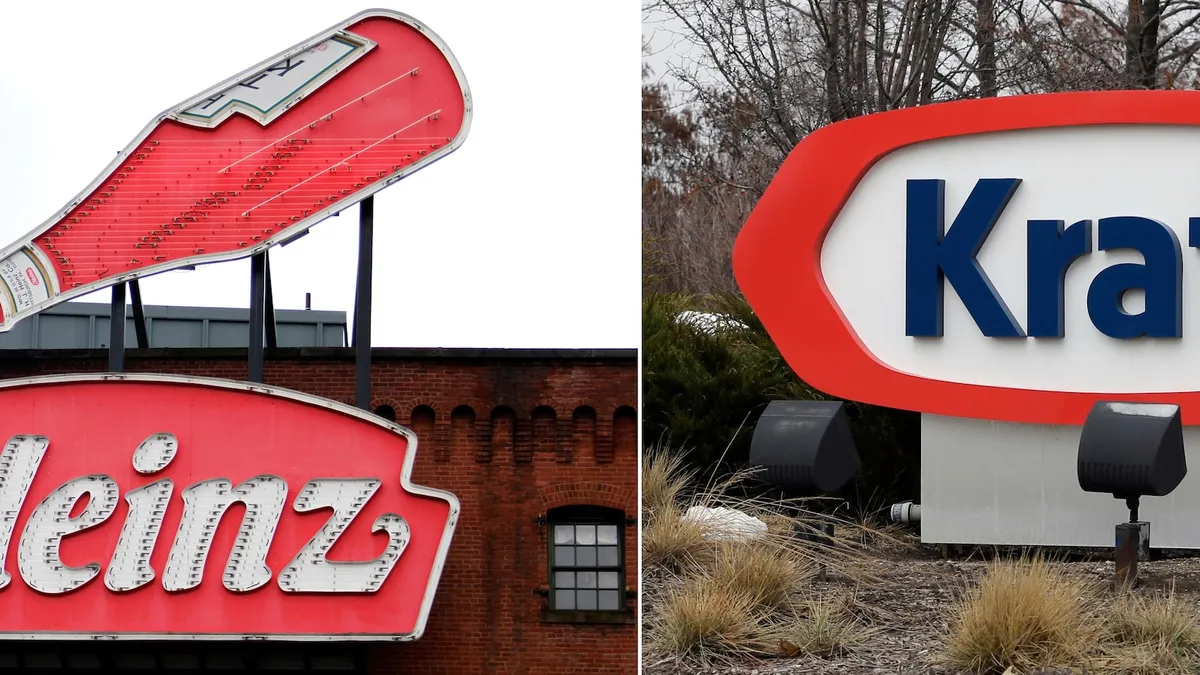
Kraft Heinz, one of the largest food companies globally, is undergoing a significant transformation by splitting into two distinct entities. This decision comes nearly a decade after the merger of Kraft and Heinz, which aimed to create a powerhouse in the food industry. The announcement was made on Tuesday, shedding light on the future direction of both companies.
The first entity, tentatively named Global Taste Elevation Co., will focus on shelf-stable meals and include well-known brands such as Heinz, Philadelphia cream cheese, and Kraft Mac & Cheese. The second entity, referred to as North American Grocery Co., will manage brands like Oscar Mayer, Kraft Singles, and Lunchables. The official names of the two companies are expected to be revealed in the near future.
Back in May, Kraft Heinz initiated a strategic review of its operations, signaling a potential split as consumer preferences began shifting toward healthier food options. In recent years, households have increasingly sought nutritious alternatives, prompting Kraft Heinz and other food producers to adapt their offerings accordingly. “Kraft Heinz’s brands are iconic and beloved, but the complexity of our current structure makes it challenging to allocate capital effectively, prioritize initiatives, and drive scale in our most promising areas,” stated Executive Chair Miguel Patricio.
The merger of Kraft and Heinz traces back to 2013 when billionaire investor Warren Buffett collaborated with Brazilian investment firm 3G Capital to acquire H.J. Heinz Co. This $23 billion deal set a record as the most expensive in the food industry at that time. 3G Capital is known for implementing stringent cost controls and zero-based budgeting, which requires all expenses to be justified each quarter. The intention behind this acquisition was to bolster Heinz's condiment and sauce sales in grocery stores.
Following the merger, Kraft, which is headquartered in Chicago, sought a partner after splitting from its snack division in 2011, which became Mondelez International. The merger in 2015 resulted in the formation of the fifth-largest food and beverage company in the world, boasting annual revenues of $28 billion. Buffett and 3G contributed $5 billion for a special dividend for Kraft shareholders. Despite these efforts, the combined company encountered challenges as consumer preferences shifted away from highly processed foods.
The combined entity faced difficulties distinguishing its products from cheaper store brands. For instance, a 14-ounce bottle of Heinz ketchup retails for $2.98, while Walmart’s Great Value brand version costs only 98 cents. In 2019, Kraft Heinz was forced to write down the value of its Oscar Mayer and Kraft brands by $15.4 billion, citing operational costs and supply chain issues. Some investors criticized the leadership's focus on cost-cutting, arguing that it stifled brand innovation.
In 2021, Kraft Heinz divested both its Planters nut business and its natural cheese business, pledging to reinvest in higher-growth brands like P3 protein snacks and Lunchables. However, the company has seen a decline in net revenue every year since 2020, following a pandemic-related sales boost. In April, Kraft Heinz lowered its full-year sales and earnings forecast, attributing the decline to reduced consumer spending in the U.S. and the ramifications of tariffs imposed during President Donald Trump's administration.
Carlos Abrams-Rivera will continue as CEO of Kraft Heinz and transition to the CEO role of North American Grocery Co. once the split is finalized. Additionally, Kraft Heinz's board is collaborating with an executive search firm to identify potential CEO candidates for Global Taste Elevation Co. The company has confirmed that it does not plan to alter its current headquarters in Chicago and Pittsburgh.
The transaction is expected to conclude in the second half of 2026, and following the announcement, shares of Kraft Heinz experienced a slight increase before the market opened.